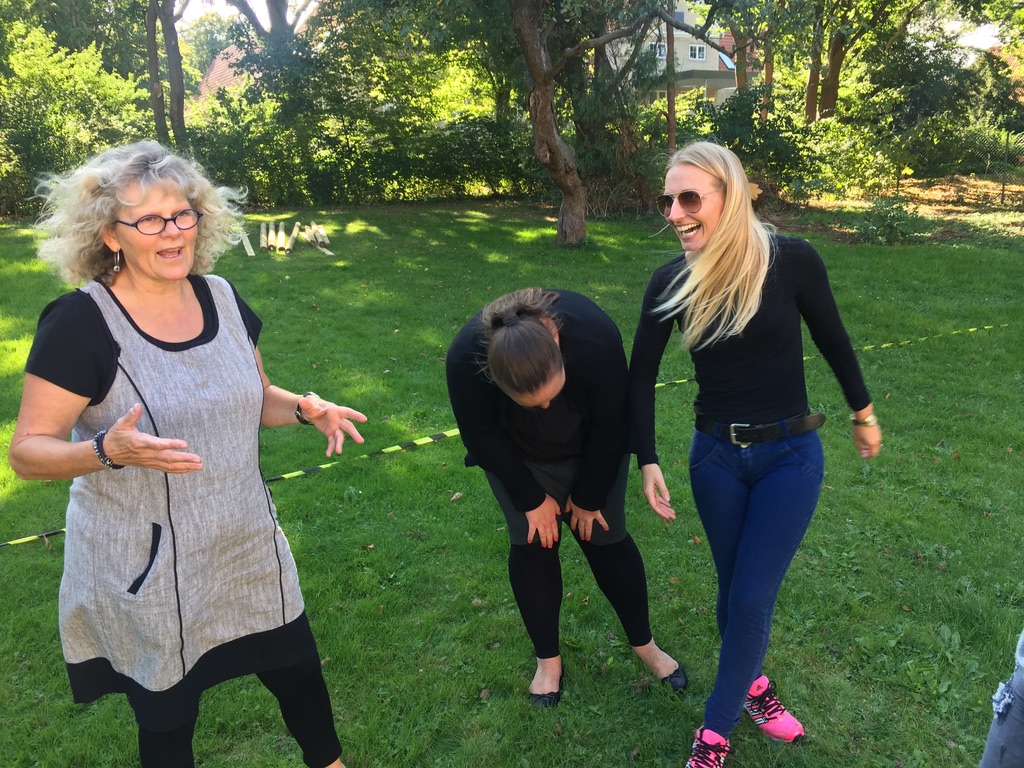Teambuilding: An Investment in People – and in Business
By [Your Name], HR Expert
In a world where change is the only constant, and where employee engagement and collaboration are critical to business success, teambuilding plays a more important role than ever. But why is teambuilding so valuable – and what can you expect to get out of it?
What is Teambuilding – and What Isn’t?
Teambuilding is far more than a fun day out or a cheerful activity with singing and laughter. At its best, teambuilding is a strategic tool that strengthens relationships, improves collaboration, and lays the foundation for greater well-being and higher performance.
It’s not necessarily about building spaghetti towers or conquering a rope course. It’s about working with the human dynamics behind effective team collaboration – both in everyday situations and under pressure.
The Value of Teambuilding: People, Relationships, and Results
1. Better Dialogue and Understanding
One of the most direct and noticeable outcomes of good teambuilding activities is almost always better dialogue and communication. When colleagues interact outside their usual routines – especially if they get wet or muddy – many formal barriers dissolve, and 1:1 conversations emerge while people get to know each other on a whole new level.
2. Increased Focus on Psychological Safety
Trust is the foundation of any strong team. Teambuilding can help build or rebuild this trust by creating space for vulnerability, honesty, and shared experiences. Psychological safety – the ability to speak up without fear of being rejected – is a proven key factor in high-performing teams.
3. Greater Well-being and Job Satisfaction
An organization is only as healthy as its people. Through teambuilding, relationships are strengthened, and employees feel seen and appreciated. This boosts well-being, reduces stress levels, and ultimately leads to lower absenteeism and better retention.
4. Better Understanding of Roles and Responsibilities
When teams engage in structured exercises or case work, differences in personalities, roles, and working styles become more apparent. This often leads to greater understanding and respect for one another’s strengths – and helps the team collaborate more effectively on a daily basis.
5. Enhanced Performance and Innovation
Teams with strong social bonds and good communication perform better. They solve problems faster, handle conflicts more constructively – and dare to think more innovatively. In this way, teambuilding isn’t just good for morale; it also generates concrete business value.
How to Ensure ROI from Teambuilding
To make sure teambuilding is more than just a pleasant day with no lasting impact, it requires a clear purpose and strong follow-up. Here are three tips:
- Start with a crystal-clear goal: What do you want to achieve? What should you walk away with – and how will you use it? Are you aiming for better collaboration, process optimization, improved well-being, or to kickstart a new strategy?
- Create reflection: Combine the activities with time for dialogue and reflection. What did you learn – and how can it be applied in daily work? (Consider using KOLB’s learning cycle)
- Follow up: Real value is created when the experience is turned into action. Use staff meetings, 1:1s, or team meetings to revisit the experience and reinforce the outcomes. Consider involving us in that process.
Conclusion: More Than Just Fun and Games
Teambuilding is not just playtime or a “nice-to-have.” It is a vital investment in culture, well-being, and performance. When done right, it delivers lasting results – both on a human level and in business terms. And perhaps most importantly: it reminds us that we succeed best when we succeed together.


